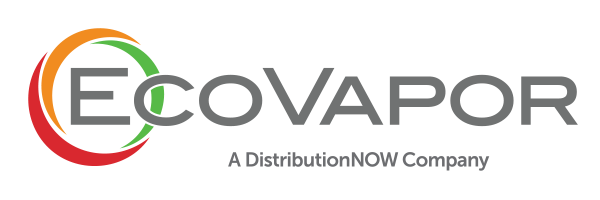- About Us
- Corporate Citizenship
- Corporate Sustainability
2024 Sustainability Report
Cultivating Sustainable Value
Our 2024 annual sustainability report highlights our dedication to ESG objectives. It showcases our unwavering commitment to transparency, sustainable growth and shared values while emphasizing the tireless efforts of our team to foster a culture of diversity, equity and inclusion.
A WORD From our CEO
 We are proud to present DNOW’s 2024 Sustainability Report, a testament to our commitment to corporate responsibility and sustainable growth. Over the past year, we have taken important steps to enhance our sustainability foundation and build on the momentum of our refreshed brand. Today, we are pleased to share some highlights of this transformative year.
We are proud to present DNOW’s 2024 Sustainability Report, a testament to our commitment to corporate responsibility and sustainable growth. Over the past year, we have taken important steps to enhance our sustainability foundation and build on the momentum of our refreshed brand. Today, we are pleased to share some highlights of this transformative year.
Throughout 2024, DNOW continued to make significant strides in sustainability, reinforcing our position as a premier leader in the energy and industrial sectors. We remained focused on delivering solutions that support our customers’ environmental goals, helping them reduce impact and improve efficiency. We empowered our employees to make a difference through community engagement, and our strong governance practices continued to guide our strategic priorities.
We delivered solid financial results, accentuated by $289 million in free cash flow, and fully executed our inaugural $80 million share repurchase program, while growing revenues on a year-over- year basis to $2,373 million for the full-year 2024. Our results reflected the continued execution of our strategy, combining prudent working capital management and a debt-free balance sheet to position DNOW for continued growth in the future.
We completed two acquisitions in 2024, making it one of the largest acquisition years in the company’s history as a public entity. The Whitco Supply acquisition expanded our operations in the midstream market, while the Trojan Rentals acquisition increased our water management capabilities, adding sustainable water sourcing, recycling and disposal solutions for our customers. We also continued to grow our EcoVapor gas treating business, helping oil & gas and renewable natural gas (“RNG”) operators reduce Scope 1 emissions and recover valuable gas.
DNOW’s progress extends beyond operations and into meaningful social sustainability outcomes. We achieved a 24% year-over-year decrease in TRIR, consistently maintaining rates below the industry average as reported by the U.S. Bureau of Labor Statistics. We launched new employee resource groups to celebrate diverse cultures and amplify the voices of marginalized communities. Our worldwide DNOW Lights program continued to promote social responsibility and lead by example, contributing 2,184 volunteer hours and raising more than $300,000 for charitable organizations.
As we look ahead, we remain focused on environmental responsibility, social impact and a strong culture of governance. Our sustainability disclosures, incorporating SASB and TCFD frameworks, provide accountability and insight to DNOW’s long-term strategy. We are proud of what we have achieved and motivated by the promise of what lies ahead.
Thank you for your continued confidence and support.
How does DNOW approach sustainability?
DNOW is dedicated to ensuring a safe and respectful workplace while conducting business in a socially responsible and sustainable manner. Our corporate sustainability strategy aligns with our core values, focusing on creating positive social and environmental impacts within an effective governance framework. Our corporate responsibility program is overseen by a management committee comprised of senior leaders from various functional areas within DNOW.
Our Board of Directors supervises our sustainability initiatives through the Environmental, Social, Governance & Nominating Committee, as investors seek comprehensive information to make well-informed investment decisions. Annually, we engage with our shareholders to gather feedback and address their inquiries related to our data-driven disclosures. This input is considered each year alongside peer analysis and annual standards assessments to guide our corporate responsibility reporting and strategy. The results of these evaluations form the basis of this Report, including the decision to adhere to the SASB and TCFD frameworks.
How is DNOW Cultivating Sustainable Value?
Cultivating sustainable value for DNOW is achieved through several interconnected strategies that balance short-term performance with long-term viability. Our growth strategy aims to protect and expand our core markets, achieve growth by participating in the energy evolution by providing our customers with products to reduce methane emissions, capture CO2 emissions through CCUS and direct air capture opportunities and renewable energy products such as renewable natural gas and sustainable fuels. We are also expanding opportunities in a number of adjacent industrial markets where we have a number of environmental beneficial products that help our customers’ sustainability.
Intertwined with our strategy is our focus on operational excellence through efficient operations that can scale and adapt over time. These include optimized supply chains, employing robust quality control systems and building organizational capabilities that support growth. Furthermore, we continue to weigh stakeholder capitalism decisions in balance with ESG integration, financial discipline and building trust with investors, customers, suppliers and other stakeholders through thoughtful communication.
What progress did DNOW make in 2024?
We take great pride in the advancements we have made in our sustainability initiatives each year, building on our initial disclosures from the past six years. Notably, one of our most significant achievements has been fostering and supporting a winning culture, where our values inform our business practices. A year ago, we set forth foundational steps to rebrand DNOW, incorporating our three core principles: inspiring one another, delighting our customers and fueling the future. Over the past year, we have successfully integrated these principles across DNOW through various employee development and communication initiatives.
In 2024, DNOW:
- Expanded our custom environmental solutions that help customers reduce emissions and manage water usage. Our Supplier Code of Conduct was reinforced to elevate expectations for sustainable practices in our vendor partners.
- Focused on supporting communities and fostering an inclusive workplace, including deepening our partnerships with several charitable organizations. These initiatives have been instrumental in fostering a culture of inspiring one another.
- Strengthened our governance framework to ensure accountability and transparency. The Environmental, Social, Governance & Nominating Committee has been instrumental in guiding our ESG strategy and monitoring our corporate social responsibility and environmental sustainability initiatives. Our Board of Directors continues to oversee our sustainability efforts, ensuring that our strategies align with shareholder expectations and industry best practices.
DNOW is enthusiastic about the future and its role in expanding sustainability for our operations and for our customers. With a solid foundation and a clear path forward, we’re poised for a successful 2025 and beyond.
Our Ethos
Inspire One Another
Foster an inclusive, people-first culture.

Fuel The Future
Win the market and pursue sustainable growth.

Delight The Customer
Be our customers' most trusted partner.
ABOUT US
DNOW is a supplier of energy and industrial products and packaged, engineered process and production equipment with a legacy of over 160 years. Headquartered in Houston, Texas, with approximately 2,575 employees and a network of locations, we offer a broad set of supply chain solutions combined with a suite of digital offerings branded as DigitalNOW® that provide customers access to highly complementary digital commerce, data and information management channels. Our locations provide products and solutions to companies in exploration and production, midstream transmission and storage, refineries, chemical production, utilities, mining, municipal water, manufacturing, engineering and construction, as well as those involved in decarbonization, energy evolution and renewable end markets.
We cater to diverse industries, from exploration and production to renewable energy sectors; we are committed to driving progress and supporting the transition to a sustainable future.
For more information about DNOW, visit www.dnow.com/company.

DNOW At-A-Glance
We remain focused on delivering strong financial performance and long-term value for our shareholders. Our inclusion in multiple industry rankings reflects our operational excellence and ability to adapt in dynamic markets. As we continue to strengthen our position, we are also advancing sustainability initiatives that align with evolving industry standards and expectations, ensuring responsible growth and resilience in a changing global landscape.
$2.37B
Revenue
$81M
Net Income
$176M
EBITDA
$0.74
Diluted EPS
- Cash provided by operating activities was $298 million for the full-year 2024
- Revenue was $2.373 billion for the full-year 2024
- Net income attributable to DNOW Inc. was $81 million, or $0.74 per diluted share, for the full-year 2024
- Non-GAAP net income attributable to DNOW Inc., excluding other costs, was $100 million, or $0.91 per diluted share, for the full-year 2024
- EBITDA, excluding other costs, was $176 million, or 7.4% of revenue, for the full-year 2024
- Cash and cash equivalents was $256 million and long-term debt was zero at December 31, 2024, with total liquidity of approximately $556 million

25
manufacting
site audits
0
employee fatalities &
TRIR1 lower than BLS2
industry averages
Over
93%
carbon-neutral parcel shipments for five
consecutive years through
our supplier partnership3

>34%
decrease in Scope 1 & 2 greenhouse gas (GHG) emissions intensity from 2021 (34.64% exact)

316 total deployed ZerO2™ equipment units in the U.S., enabling oil & gas and RNG operators to cut 5+ million MT CO2e annually4
1 - Total Recordable Incident Rate (“TRIR”).
2 - Bureau of Labor Statistics (“BLS”).
3 - Specific to U.S. only; prior to 2024 acquisitions, nearly 100% carbon-neutral shipments for four consecutive years.
4 - As of December 31, 2024, 316 total equipment skids were installed at RNG and oil & gas sites across the U.S. Collectively, these units can process over 100 million standard cubic feet of gas daily, enabling our customers to cut more than 5,000,000 MT CO2e emissions annually. Represents estimated emissions reduction design capacity as calculated by a third-party environmental consultant.
OUR SUSTAINABILITY Strategy
Who We Are
Our Guiding Principles
INTEGRITY
We hold ourselves to the highest ethical standards in all that we do.
SAFETY
We act with the highest priority on health and safety in our workplace and communities.
TEAMWORK
We collaborate with our suppliers, our customers and one another to ptimize the sum of all individual efforts, while being active participants in the communities where we live and work.
EXCELLENCE
We are passionate about being the best in the industry, making our customers priority one and creating long- term value for our stakeholders.
Our Core Values
WE CARE
We act with compassion and honesty in all that we do. We respect one another, our customers and our communities.
WE DO WHAT IT TAKES
We approach every task with energy and passion to make sure the job is done right. We continuously challenge ourselves to provide the highest level of service to our stakeholders.
WE ARE ACCOUNTABLE
We take pride in our work and are responsible for our actions and the outcomes produced.
Our Guiding Principles

INSPIRE ONE ANOTHER
Foster an inclusive, people-first culture.

FUEL THE FUTURE
Win the market and pursue sustainable growth.

DELIGHT THE CUSTOMER
Be our customers’ most trusted partner.
How We Drive Sustainable Value
Our Strategic & ESG Priorities
- Defend and grow market share within core energy markets
- Growth from customer investments tied to decarbonization and energy evolution
- Additional growth through adjacent industrial markets
- Support organic growth through free cash flow
- Inorganic accumulation strategy to grow earnings and free cash flow
- Share repurchase program
Our ESG Topics
ENVIRONMENT
SOCIAL
- Workforce Health & Safety →
- Employee Engagement & Development →
- Culture of Inclusion →
- Bringing Light to the Community →
GOVERNANCE
In support of our ESG efforts, we align with leading sustainability organizations and industry peers, which enables us to enhance our reporting and protocols in-line with evolving best practices, ultimately advancing our sustainability impact and increasing our ESG awareness. The specific metrics included in our 2024 Sustainability Report were determined by assessing the most relevant and material areas for DNOW and our shareholders, and were aligned with recommendations from the organizations below. The ESG disclosures throughout this Report are for the years ended December 31, 2024, 2023 and 2022, and include our three reportable segments: United States (“U.S.”), Canada and International, unless otherwise noted.

Sustainability Accounting Standards Board (“SASB”)
This Report follows the guidance of the SASB standards of the International Financial Reporting Standards (“IFRS”) Foundation and the applicable recommended disclosure topics for the Multiline and Specialty Retailers & Distributors and the Oil & Gas – Services standards. The SASB standards provide a standardized reporting approach that yields decision-useful metrics to help track progress and supports comparability for our investors and other shareholders. When evaluating our disclosures in relation to the SASB standards, users in some cases will need to normalize the data to make meaningful comparisons. As such, we have included certain activity metrics to aid users in their evaluation. Refer to our SASB Index section of this report, which highlights our responses to the suggested SASB accounting metrics and includes the appropriate activity metrics to provide meaningful context for our disclosed data.

Task Force on Climate-Related Financial Disclosures (“TCFD”)
As we work towards progressing on our overall ESG reporting and assessments, we also focus on understanding and mitigating the risks associated with climate change and optimizing the opportunities it presents. Since introducing our Sustainability Report in 2019, we have integrated and adopted the recommendations from the TCFD to effectively steer and gauge our advancements. Beginning with governance, followed by strategy, risk management and specific metrics, we remain committed to evaluating the influence of climate change on our operations. Our assessment according to the TCFD framework can be found in the TCFD section of this report.
This Sustainability Report covers DNOW’s operations for the 2024 fiscal year. DNOW has not obtained external assurance for this Report, but its contents have been subject to an internal quality review. Given the inherent uncertainty in predicting and modeling future conditions, caution should be exercised when interpreting the information provided in this Report.

CULTURE OF GOVERNANCE
Governance is the foundation of sustainability. DNOW’s commitment to strong governance policies and practices is rooted in our values. We operate our business with the highest standards of ethics and integrity and strive to provide accountability and transparency through active engagement with all our shareholders.

SOCIAL IMPACT
At DNOW, we believe that investing in local communities to create social and economic outcomes is at the heart of Social Impact.

ENVIRONMENTAL
Our efforts to drive long-term value through sustainability include a commitment to help protect the planet and mitigate environmental risk. We strive to reduce the environmental impact of our operations, understand our footprint across our value chain and engage our stakeholders in sustainable practices.
ABOUT This Report
The information included in this Report is subject to DNOW’s policies and requirements surrounding the disclosure of financial and non-financial data. The financial information included in this Report was sourced from our Form 10-K filed with the SEC on February 18, 2025. All non-financial data included in this Report was not subject to a third-party audit verification process.
Basis of Presentation for Emissions
DNOW has prepared our greenhouse gas (“GHG”) emissions calculations for the year ended December 31, 2024, in accordance with the World Resources Institute and World Business Council for Sustainable Development’s Greenhouse Gas Protocol standards and guidance (collectively, “the GHG Protocol”):
- Scope 1 emissions have been prepared in accordance with the GHG Protocol Corporate Accounting and Reporting Standard (revised edition)
- Scope 2 emissions have been prepared in accordance with the GHG Protocol Scope 2 Guidance: An amendment to the GHG Protocol Corporate Standard
We present our emissions under the operational control approach, accounting for emissions from operations over which we have the full authority to introduce and implement our operating policies.
Use of Estimates and Estimation Uncertainties
The presentation of non-financial data within this Report requires management to make estimates and assumptions that affect data reported within this Report. DNOW bases our estimates and methodologies on historical experience and trends, available information and various other assumptions that we believe to be reasonable. Emissions data presented is subject to measurement and uncertainties resulting from limitations inherent in the nature and methods used for determining such data. The selection of different but acceptable measurement techniques can result in materially different measurements. The precision of different measurement techniques may also vary. DNOW, nor their affiliates or representatives, make no representation or warranty (express or implied) with respect to the information contained in this Report (including, without limitation, information obtained from third parties) and each of DNOW and their respective affiliates and representatives expressly disclaim any and all liability based on or relating to the information contained in, or errors or omissions from this Report, based on or relating to the reader of this Report, or any other written or oral communications transmitted to the readers of this Report.
Forward-Looking Statements
Certain information contained in this Sustainability Report may constitute forward-looking statements within the meaning of applicable securities laws, including, but not limited to, statements regarding our plans to: move forward with identified climate change opportunities, foster programs regarding diversity and inclusion and plans to seek opportunities to further integrate sustainability factors into investment decisions. Readers are cautioned not to place undue reliance on forward-looking statements, as they are subject to a number of assumptions and known and unknown risks and uncertainties that may cause the actual results, performance or achievements of DNOW to be materially different from any future results, performance or achievements expressed or implied by such forward-looking statements. The forward-looking statements contained herein are made as of the date of this document. We also describe risks and uncertainties in our reports filed with the SEC, including our Form 10-K for the year-ended December 31, 2024, (under the headings “Risk Factors” and “Information Regarding Forward Looking Statements” and elsewhere) and our subsequent reports, which are available through the SEC’s EDGAR system at www.sec.gov, and on our website at www.dnow.com. DNOW assumes no obligation to update or otherwise revise these forward-looking statements, whether as a result of new information, future events or otherwise.

